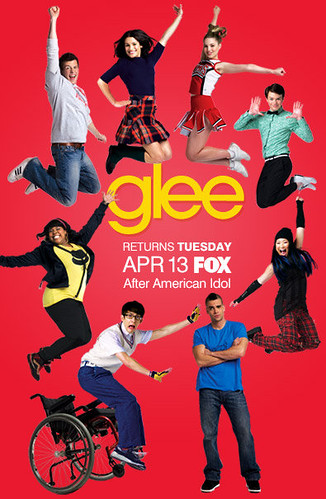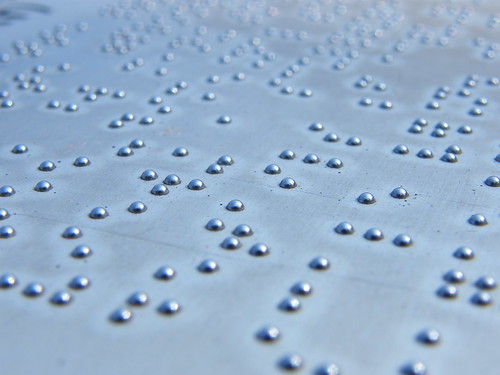
Power
The media world hasn’t stopped writing bad articles about disability in general and disability and dance in particular. I will run right over the next person who uses the “inspiring” word. There have been some truly shocking things — things that should call us as moral humans to action — but for some reason, I find myself lacking in outrage and anger. I am so happy that it is Spring. I am on a retreat, in some kind of refuge, relaxing in the city. Mildness is the word of the day.
We leave again on Monday; I have the weekend to finish my laundry, clean my brushes, recheck my chair, and pack (at least I now have a check list). When I was first packing for this trip a couple of weeks ago, I dug out my fleece pants and fleece-lined tights (these things are just awesome). Now, I am thinking about light blouses and cotton yoga pants. The weather has changed and with it my sense of place in the world.
Special Autism Fools Day Link-o-Rama
When T.S. Eliot said that “April is the cruelest month,” he truly got it right. For you Normals (using the word in a humorous context, of course…), it may be hunky dory, what with all the opportunities to make yourselves look and feel charitable by simply giving money to any autism charity organization that advocates for a cure. However, for us autistic people Autism Awareness Month is often aggravating.
Fire in the Frost: Fiesty Olympians Defy the Odds
Despite being born with the use of both legs, many of these bipedal athletes inspire us with their commitment and guts. Having typically learned to walk around the age of one, these amazing Olympians don’t let their lurching two-phase locomotion hold them back. Thought they may look unwieldy to the naive eye, as viewers their movements soon look natural to us. We can see their grace and nimbleness shine through.
Two-legged skiers don’t let their long bulky hindlimbs weigh them down on the slopes; they have learned to use them to the fullest to guide their path down the mountain. In the freestyle aerial competitions, they inspire us as they twirl against the blue Canadian skies, looking almost graceful – unless they fail to keep their dual legs parallel, a particularly common trap for skiers in this event! Sighted skiers seem to remain undistracted by seeing objects near the course while hurtling down the slopes. They handle their unique visual issues well, managing to put aside most distractions and focus on the task at hand. These skiers don’t let their vision stand in their way on the snow!
New Childcare Subsidy Regulations
Last April, when I finished my exams, you gave me 90 days to find a job before I lost my childcare funding. You understood that jobs do not appear out of thin air, they take work to aquire. This year, you decided that I am to lose my childcare space the day the exam period is over.
Now I ask you, Mr. Neo-liberal Policy Maker, how am I supposed to find a job without daycare? You say I can look for work while my children are in school. I accept that premise, but what you don’t answer is what I am supposed to do when I find a job and have already lost my daycare spots? I will have to turn down the job because I won’t be able to go to work without daycare- especially because my son is in kindergarten, and, as such, is not yet in school full-time. It took me 3 years to get through the waiting list at the daycare my children need to be in for me to attend grad school in September because it is the only childcare center in the city that is open later than 6:00 and my classes will run in the evening. That means that if I lose this daycare spot, I may not be able to go to grad school in September. But I’m glad you saved a few dollars.
An Immortal Story: The Immortal Life of Henrietta Lacks
There is so much that this book makes you think about: medical ethics (using cells/doing research on people without consent happened a lot–note the Tuskegee studies, and the question of ownership of bodies), the role of women (along with issues of abuse, equality in the workplace, the role of a mother), education, health insurance (Henrietta’s family is still unable to afford health insurance today) and how all those issues are affected by race and social class (i.e. because Henrietta was a black female she didn’t go to school; lower class people live without health care because they can’t afford it, etc.). In writing about all these subjects, Skloot herself becomes part of this family’s story which adds even more heart to it. She writes about it all with a knowledge of her subject and a compassion for the people she profiles, interviews, and—sometimes—lives with, all while giving well-deserved, belated recognition to the woman behind HeLa.
On Autism Awareness Month
Growing up with autism in my world has taught me a lot about communication…about the power of sound, the meaning behind high pitched wails or low rumbling laughter.
Autism has taught me the precious value of a hug or a kiss…of eye contact or a quick glance…of a tickle and the giggles it inspires.
I have lived my entire life with autism.
For me and mine, autism is…it just is. Sometimes it’s a pain in the ass and sometimes it is the most amazing thing, but autism is a constant thing not limited to months or years or days when walks take place.
If you do nothing else today, read this
Let’s imagine for a moment that you are long into the public mental health system. You have been in the hospital multiple times, in a couple of partial hospitalization programs, and have spent years in sheltered workshops and day programs. You’ve received the Prophecy of Doom, “Too sick for too long to get any better.” You’ve heard plenty of statements beginning with “You can’t, You won’t, and You will never.” You’ve been told endlessly that something is intrinsically (genetically) wrong with you and the only thing that will truly save you is a medication yet to be discovered. You’ve also been told that the most important thing you can do is get on SSI or SSDI in light of the prolonged and persistent nature of your illness. You’ve been told to engage in meaningful activities generally limited to walking, listening to music, and reading. You’ve been told countless times to avoid any stressors which might be associated with more rewarding activities and these stressors will doubtless lead to yet another hospitalization. You’ve been told so many things.
Headlines:
Military plans to test brain-injury therapy
Burger King ad featuring its mascot as crazy offends mental health organizations NOTE: Unless the author has gone ahead and changed it since I posted it, this article is basically making fun of the idea that anyone would think that there’s anything to the criticism.
Via Sweet Machine: Cinemas turn up lights, turn down sound for families touched by autism: AMC and Kerasotes Theaters adjust theaters’ lighting and sound, while letting people with autism and their families clap, dance and sing




